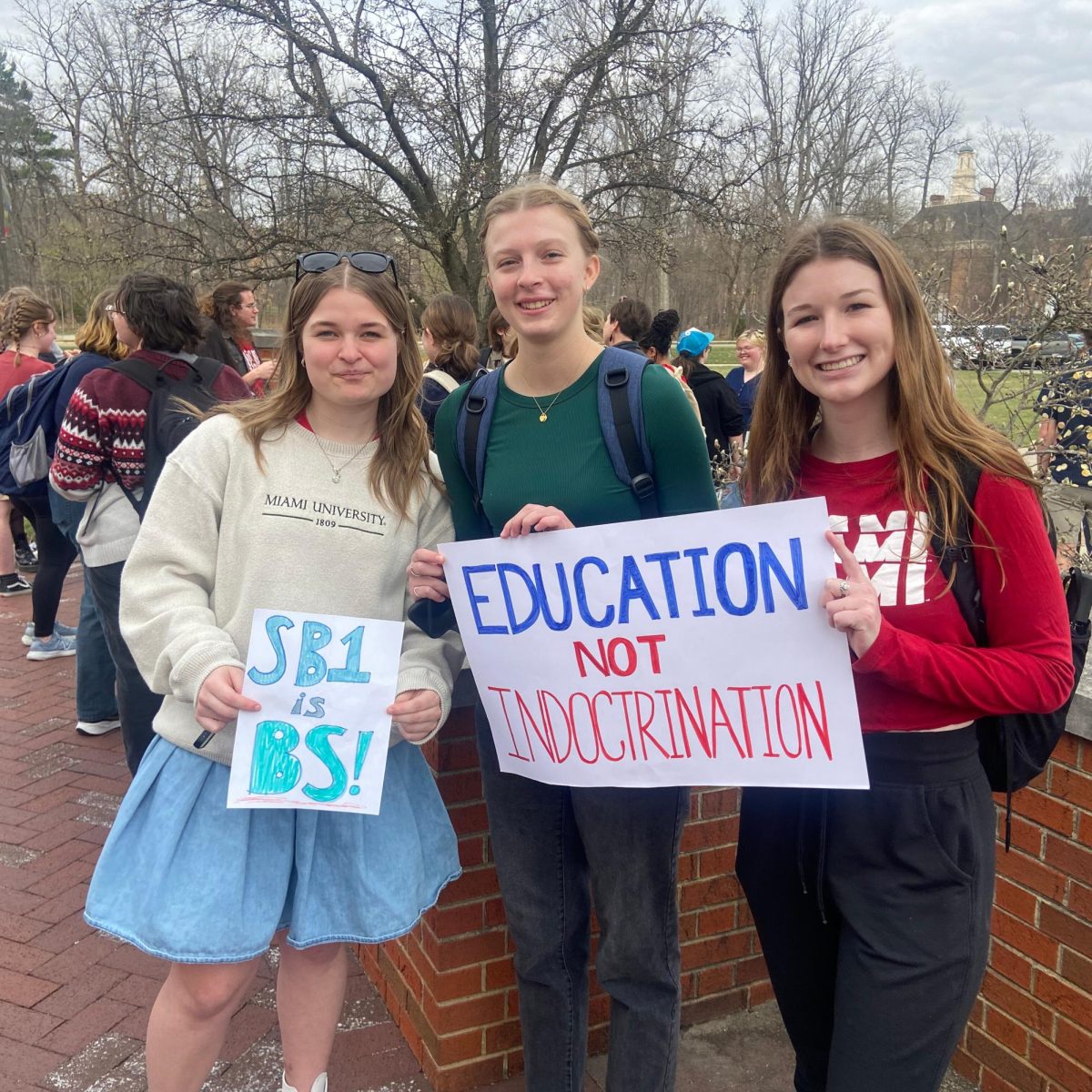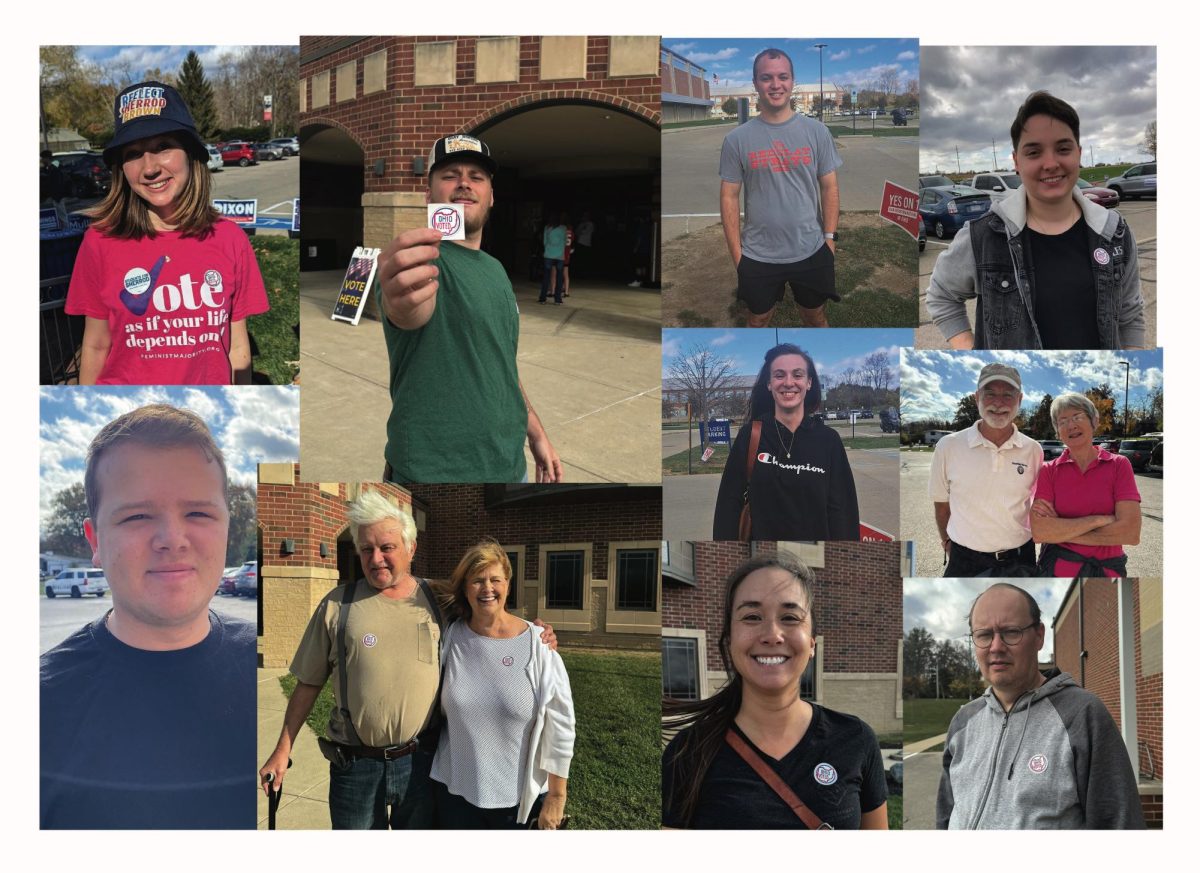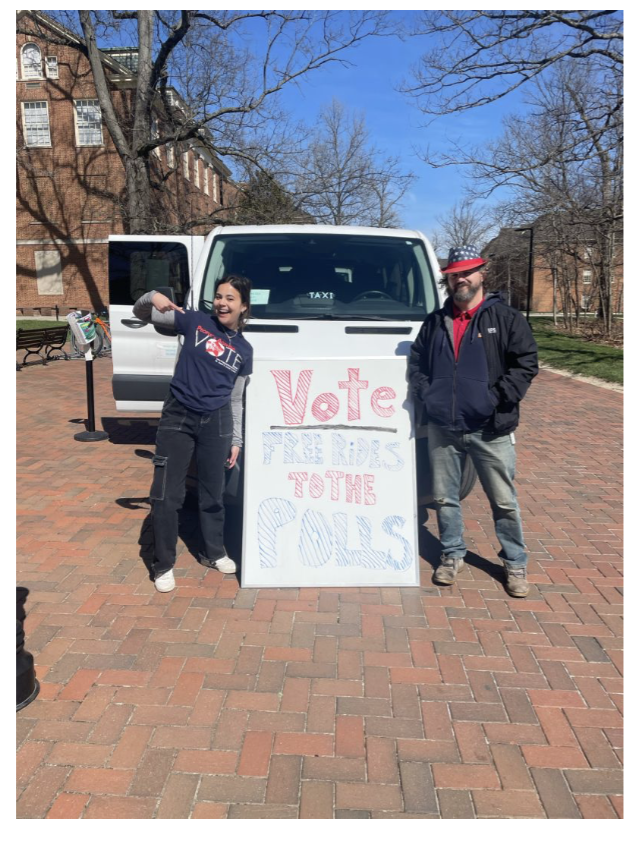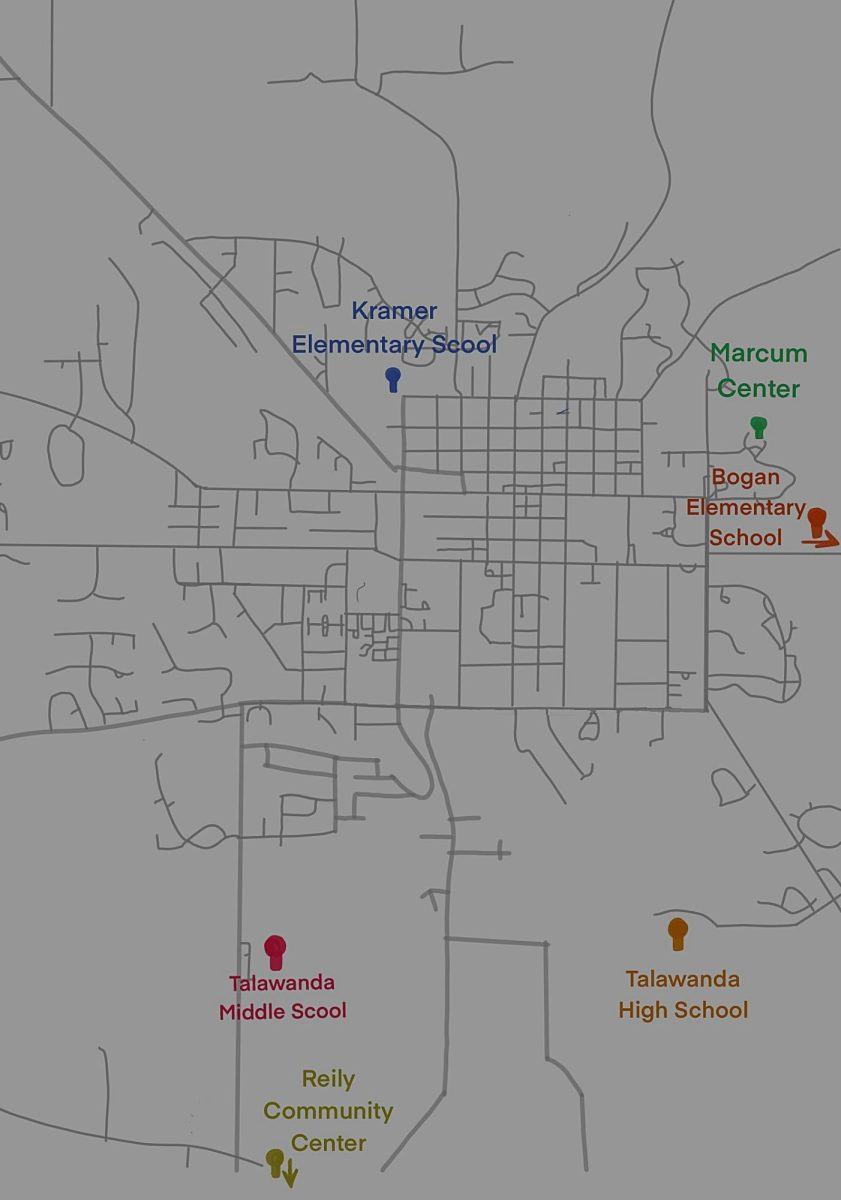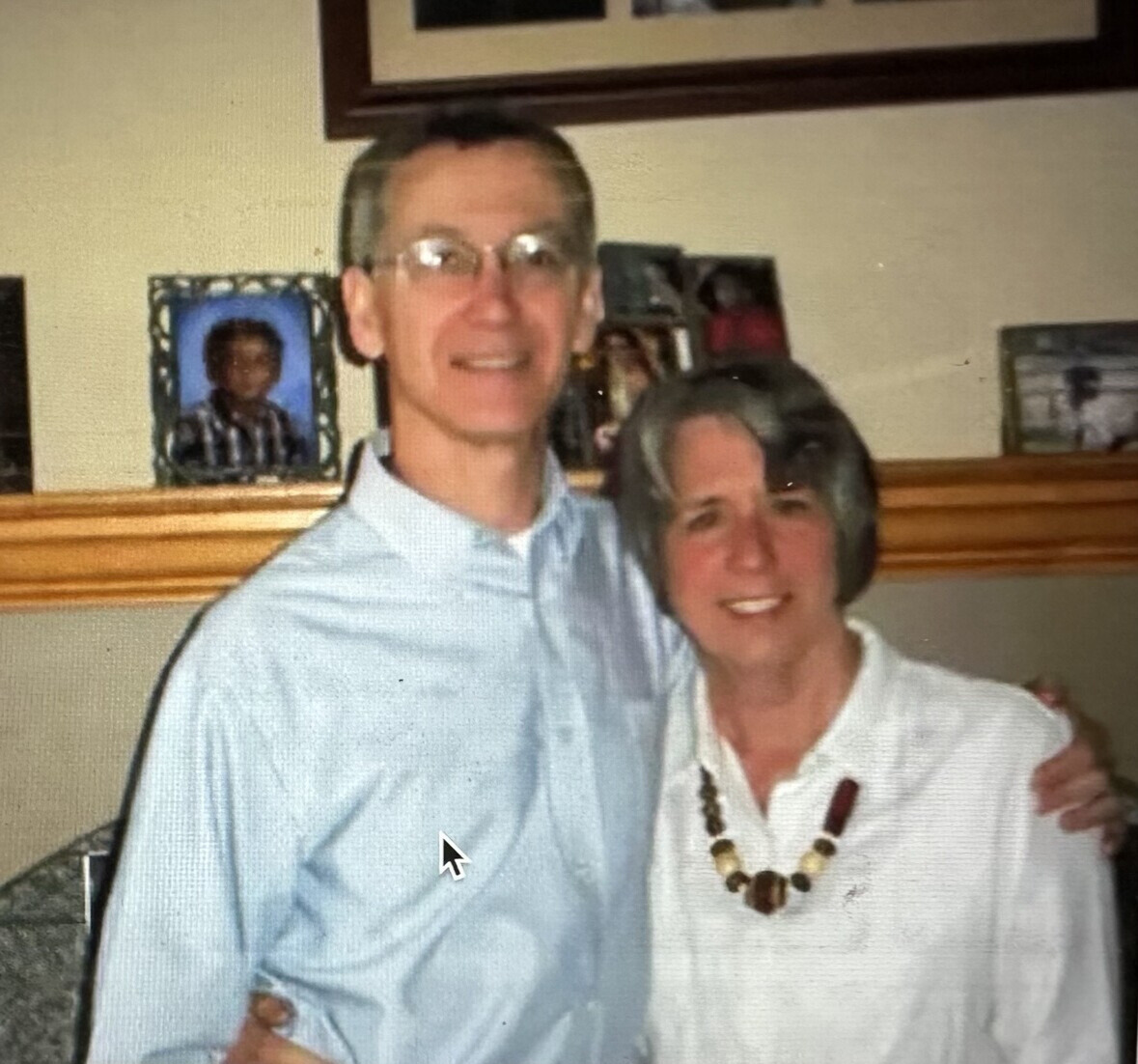If you missed Monday’s Talawanda School Board meeting, you won’t have much luck finding out exactly who said what.
The meeting was filled with community members expressing their views in the ongoing debate over whether Talawanda High School should change its mascot. But when the official minutes of the meeting are printed up and posted on the district’s website, readers won’t be able to see exactly what was said. That’s because the written minutes only summarize the meetings, often leaving out all conversation.
On July 16, the school board voted 3-2 against a proposal by member Pat Meade to publish audio and video recordings of the meetings.
In response to that vote, on Sept. 17, Prue Dana of the League of Women Voters requested that the board reconsider the issue and implement an audio/video recording system similar to what Oxford City Council uses at its meetings.
“It makes democracy more accessible to people who can’t attend meetings, and it also protects speakers,” Meade said. “It provides transparency.”
According to School Board President Mark Butterfield, one of those who voted against the proposal on July 16, there were many reasons for the no votes.
“Some [reasons] are relative to students that would be filmed during the board meetings themselves and there are some legalities around that as well,” Butterfield said.
“I know that it’s been brought to the board several times relative to filming or recording the meetings,” Butterfield said. “I think throughout the years each board has had different reasons for [voting against] it.”
The details of those reasons, the legal and other issues that went into the reasoning of Butterfield and the other board members, are impossible to inspect because no one ever recorded the discussions in the minutes.
The written minutes of the school board meetings are put into computer program called BoardDocs and posted on the district website, where they available to the public.
The written minutes of the July 16 meeting, when Meade’s proposal was on the agenda, contain only the following about the matter:
Mr. Meade moved, and Mr. Otto seconded the motion to approve of videotape production of BOE meetings, as presented.
Aye: Mr. Meade, Mr. Otto
Nay: Mr. Butterfield, Dr. Crowder, Dr. Roberts
Mr. Davis declared the motion failed 2-3.
The minutes contain no record of any discussion about costs, legal issues or reasons for recording or not recording. Only the motion and the vote are noted.
Few Details in Written Minutes
In the written minutes of the Sept. 17 meeting, at which Dana asked the board to reconsider the issue, there is only this:
Prue Dana, representing the League of Women Voters, read a letter regarding videotaping of Board meetings that was sent to the BOE earlier in the week.
The minutes contain no details of why Dana thought the board should reconsider and no indication of what the letter said.
Oxford City Council makes its meetings available for the citizens in the community to watch live when they’re happening, or after they have happened, on its website. For example, at its Sept. 18 meeting, the council discussed a new zoning ordinance that would allow the construction of more student housing. Here one can hear exactly what members of the public and council members said on the matter, and how the members voted.
Before this technology was put in place at the city, community members had to rely on the written minutes taken at the meetings to get their information, or they had to physically show up to the meetings. This remains the school board model.
“[Recording] helps people stay informed with the civic things that are going on right now,” said Dana, who is also a former mayor of Oxford.
Dana said she is not saying the school board’s written minutes are inaccurate – they just are not as complete as they could be.
“I don’t want to say that they [the school board] have been in the wrong,” she said. “As far as keeping a log of exactly what the minutes are, that’s where they’re not as transparent.”
The issue of providing sound and visual recordings of school board meetings was first brought up by Meade last January, when it was “discussed” in a board work session on Jan. 29.
The total record of those “discussions,” as shown in the written minutes, are as follows:
Mr. Meade requested a draft of the BOE agenda be sent out at least a week before each meeting. He also suggested the Board consider videotaping its meeting similar to the City of Oxford.
Mr. Butterfield said the videotape idea was brought up years ago and considered too expensive, which led to the district’s current use of BoardDocs. Dr. Crowder added that videotapes can get lost and that video cannot replace written minutes, which are still required.
However, Oxford’s system is digital–it does not use videotapes–and might cost significantly less than its videotape counterpart of “years ago.” No one has suggested doing away with written minutes, which are legally required.
Recordings Improve Accuracy
According to Dana, city council has seen improvement in its meeting minutes since implementing video recordings at the several years ago.
“The Oxford staff can go back and use [the videos] to look up exactly what was said,” Dana said.
According to Oxford’s contract with Granicus, the software service used for its recordings, the city spent just under $11,000 this year on the software that makes it possible for viewers to access these recordings. These recordings cover four meetings per month for the city council.
Council member David Prytherch said the cameras are a subtle presence, but council members know they’re being recorded.
“We all assume that’s a part of what local government means,” Prytherch said.



